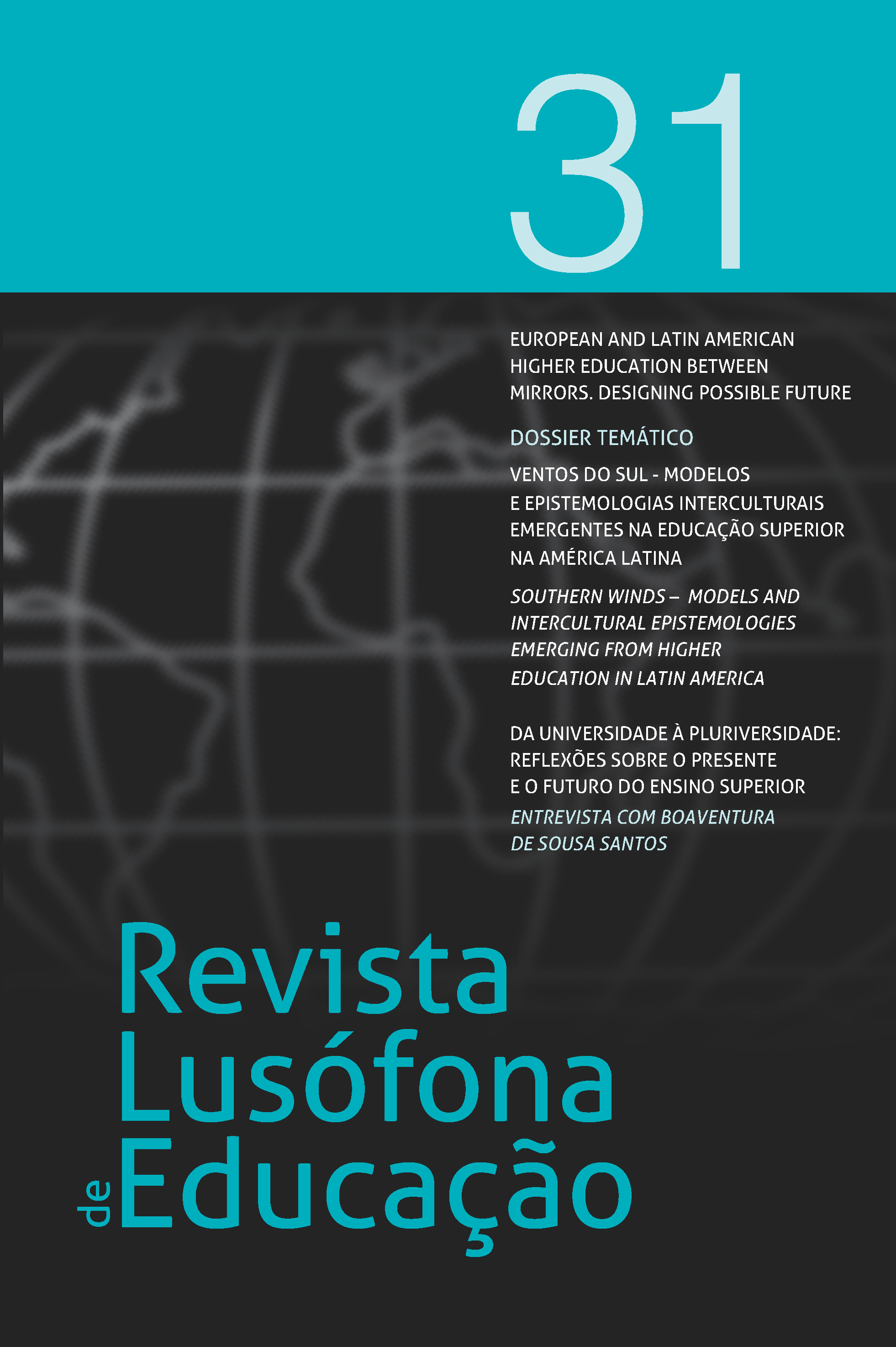European and Latin American Higher Education Between Mirrors. Designing possible futures
Resumo
This paper discusses some of the analyses and proposals presented by a large network of European and Latin American researchers that developed a broad programme on institutional equity and social cohesion in higher education institutions, between 2011 and 2013. The impact of higher education expansion and diversification has been felt and questioned differently in the various countries, due to their history and place in the world system, to their education systems, to their organization, or their ability to react, to mobilize resources and to implement relevant policies. The article has Europe and Latin America as privileged locus of analysis, but acknowledges that many of the characteristics and issues described are part of a global agenda. It is assumed that neoliberalism has failed as a model of economic development, but it is recognized that, as policy for culture, it is (still) in force, derived from having become a common sense that shapes the actions of governments and education policy-makers. The University, as well as higher education policies, may have another sense and give an important contribution to the construction of fair societies, fighting for equality among human beings, fully respecting their differences. This is the sense of the nine proposals for a radically democratic and Citizen University the paper ends with.
Keywords:
higher education; academic networks; Europe; Latin America; citizen university.
Downloads
- Os autores e as autoras conservam os direitos de autor, sem quaisquer honorários, e concedem à revista o direito de primeira publicação, com o trabalho simultaneamente licenciado sob a Licença Creative Commons CC-BY - Atribuição 4.0 Internacional, a qual permite que outros compartilhem (copiar e redistribuir o material em qualquer suporte ou formato) e adaptem (remixar, transformar e criar a partir do material para qualquer fim, mesmo que comercial), com reconhecimento de autoria e publicação inicial na RLE;
- Os autores e autoras têm autorização para assumir contratos adicionais separadamente para distribuição não-exclusiva da versão do trabalho publicada nesta revista (ex.: depositar em repositório institucional ou como capítulo de livro), com reconhecimento de autoria e publicação inicial na RLE;
- Os autores e autoras têm permissão e são estimulado/as a publicar e distribuir o seu trabalho online (ex.: em repositórios institucionais ou na sua página pessoal), já que isso pode aumentar o impacto e a citação do trabalho publicado (Veja O Efeito do Acesso Livre).








